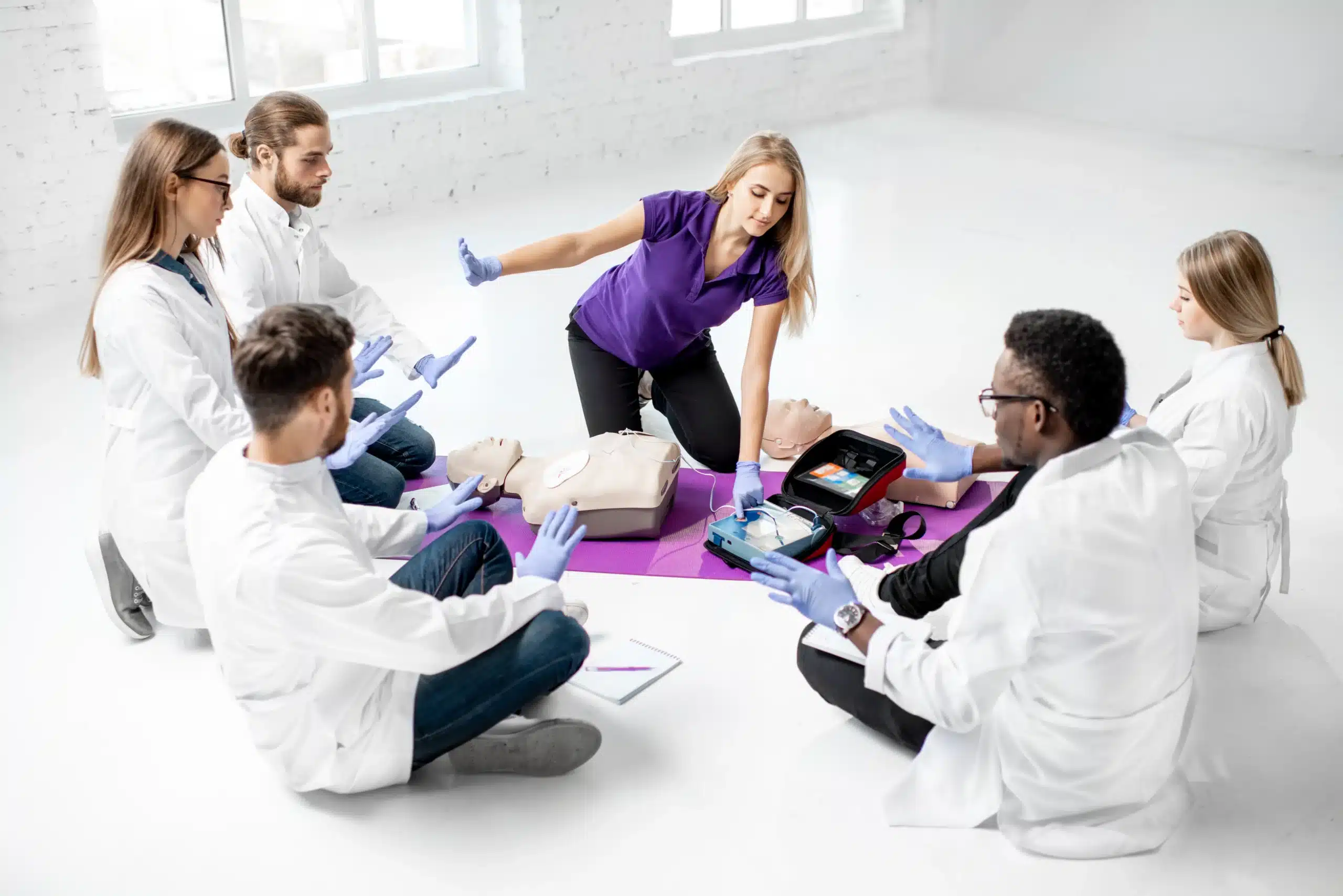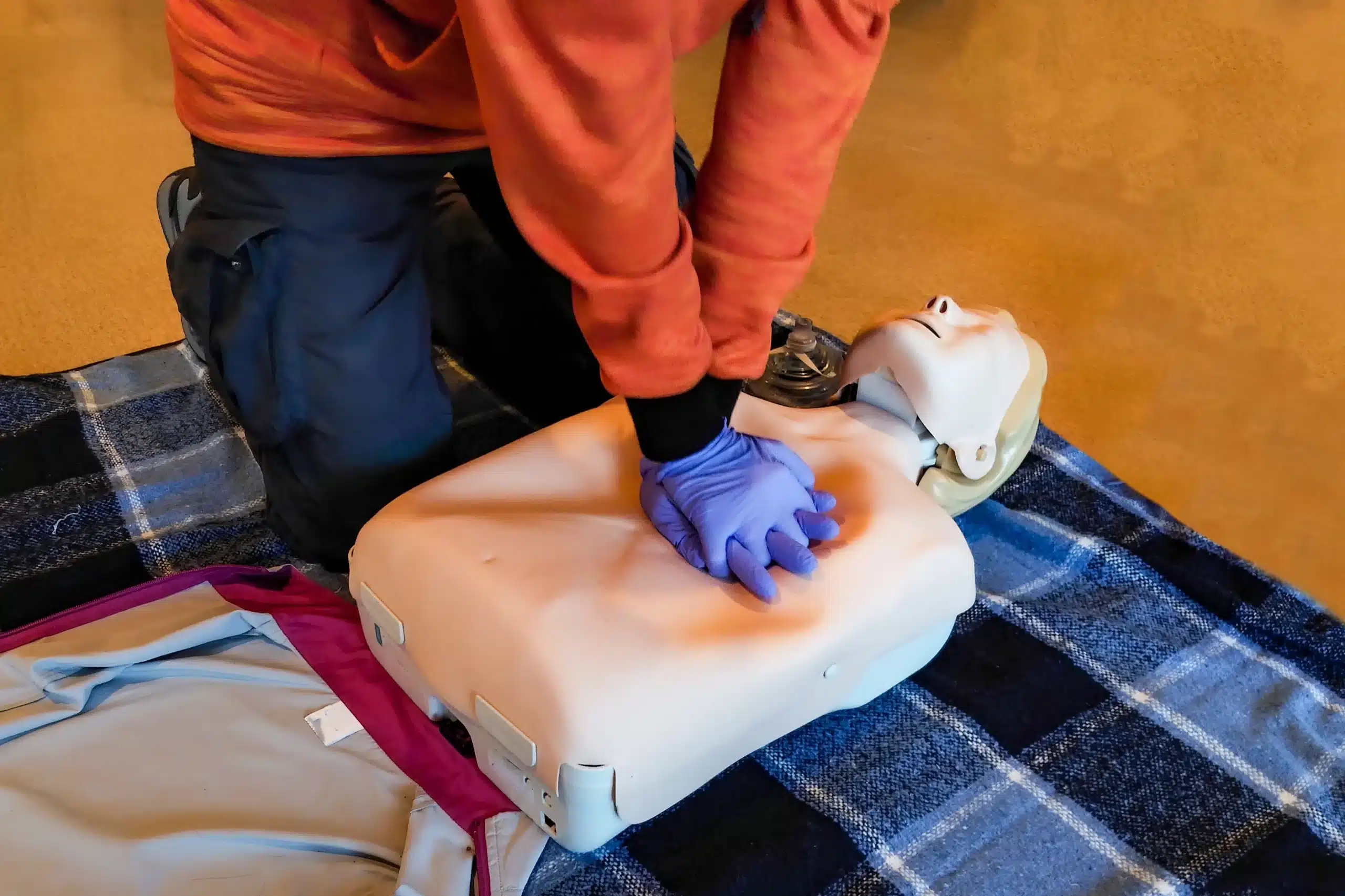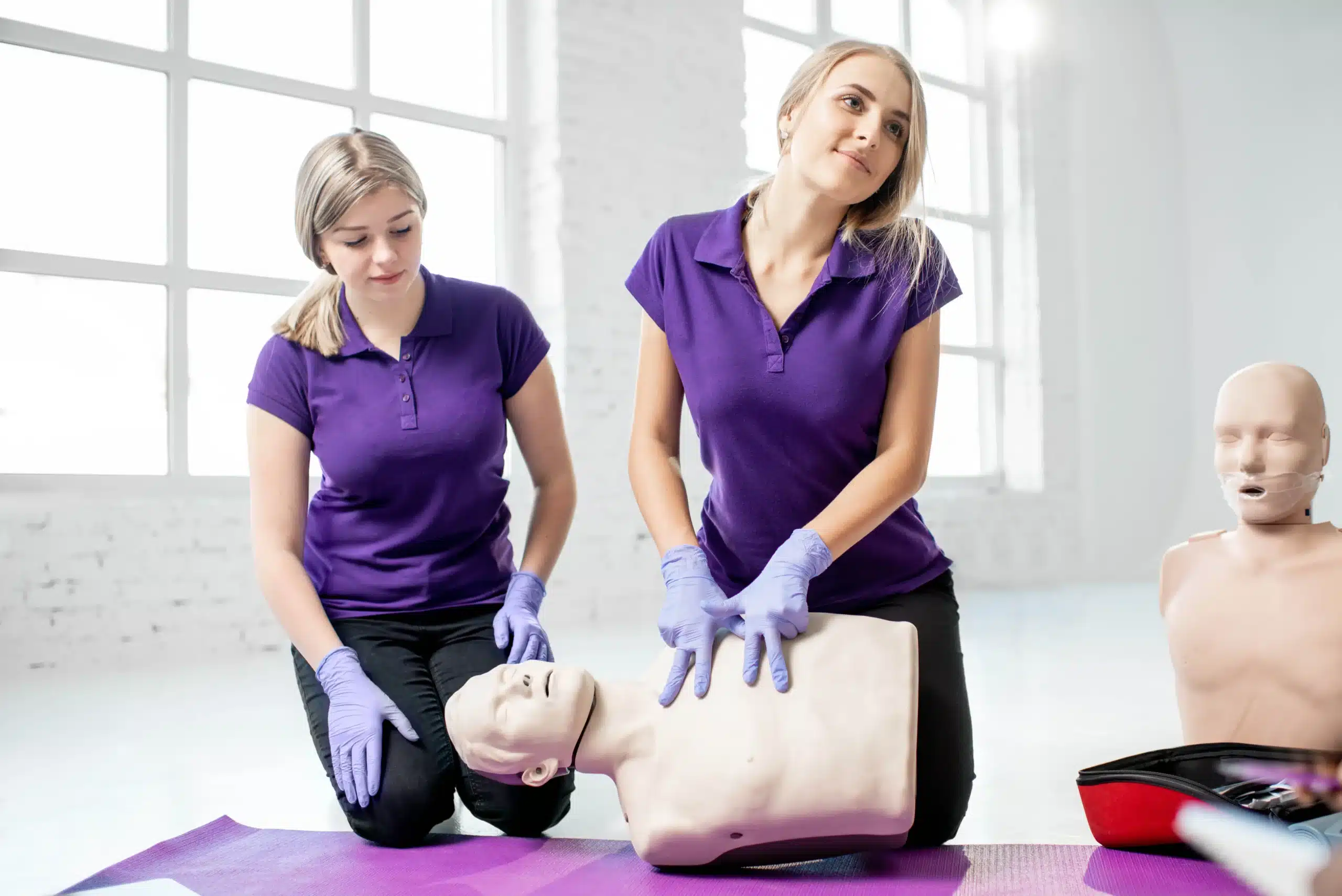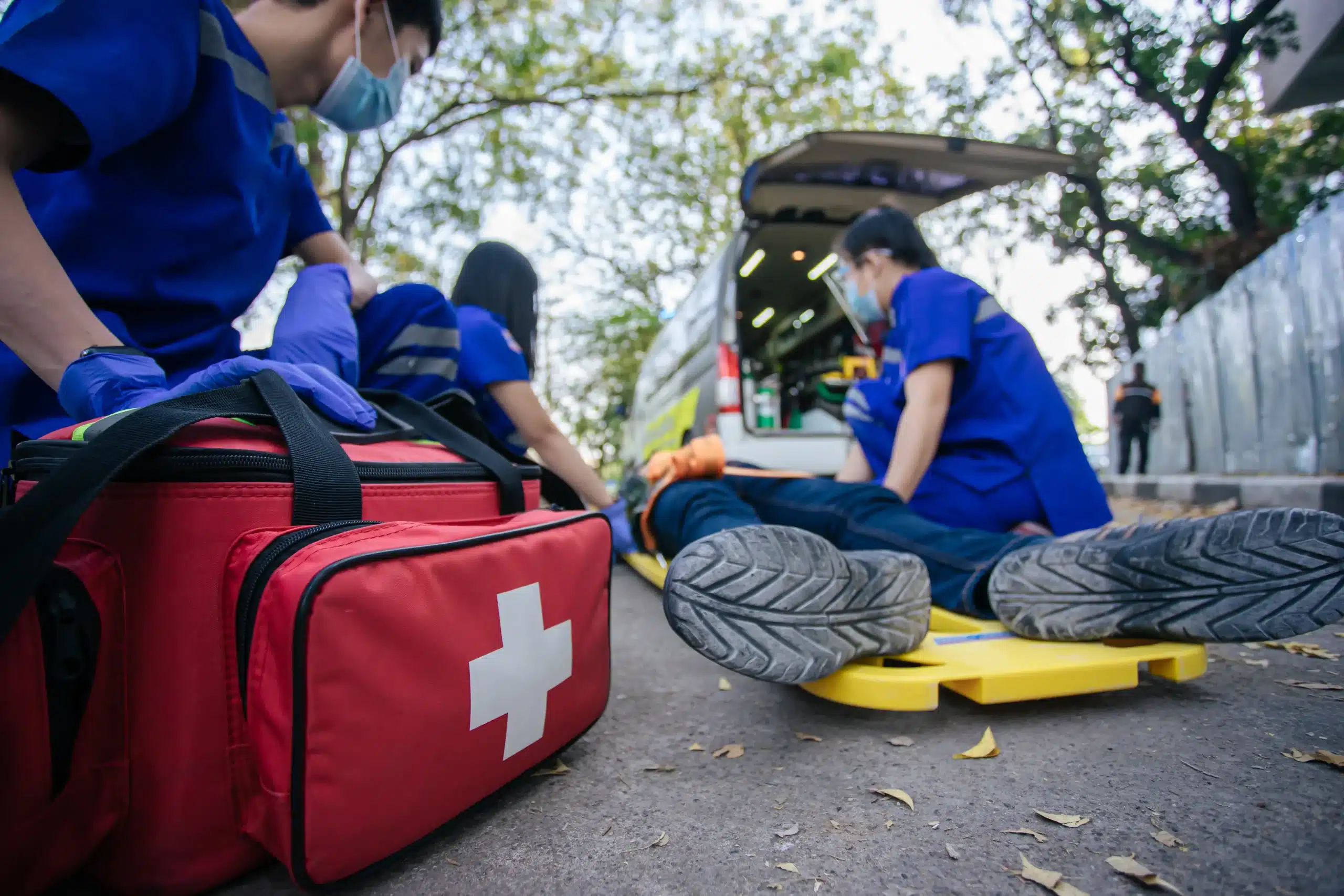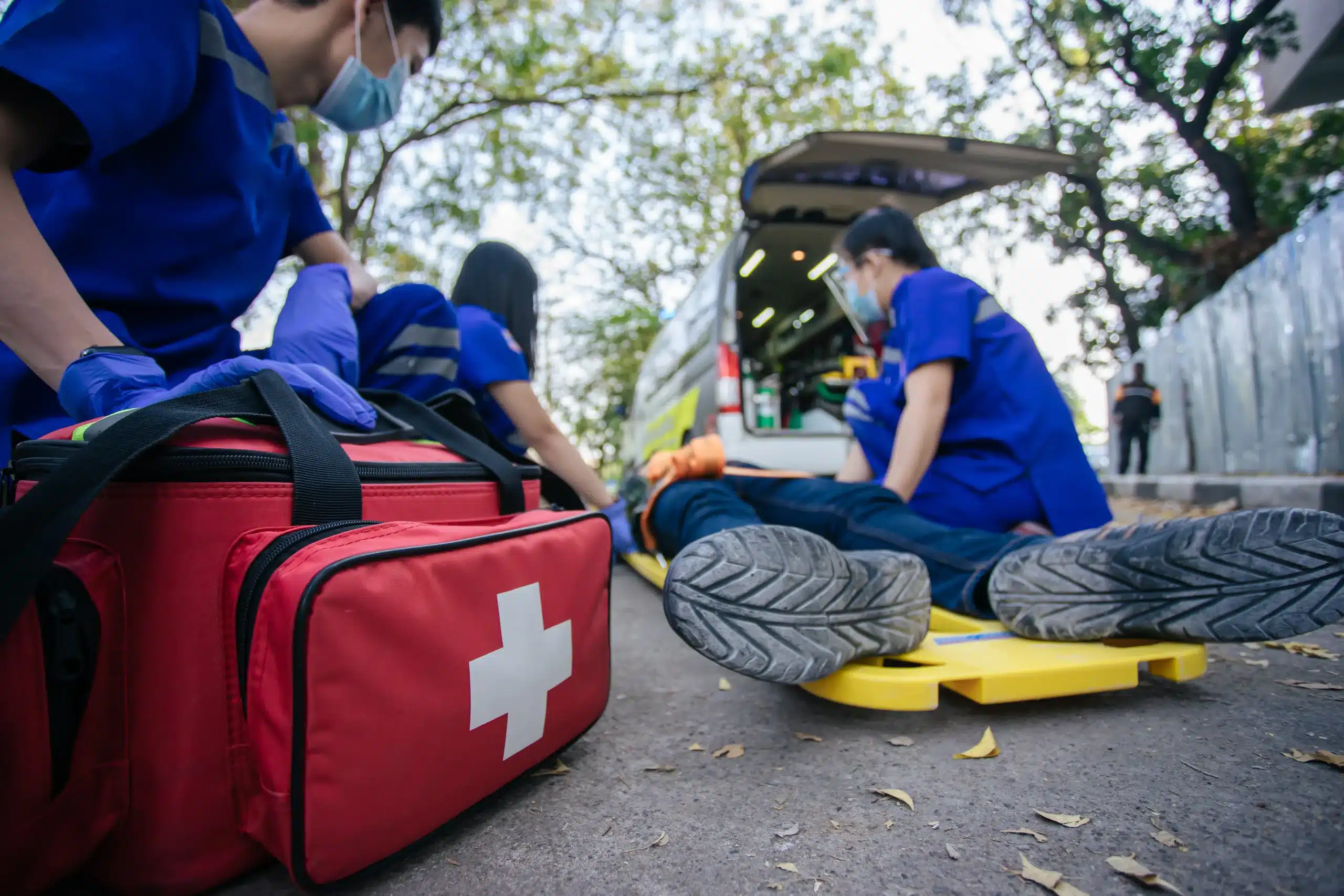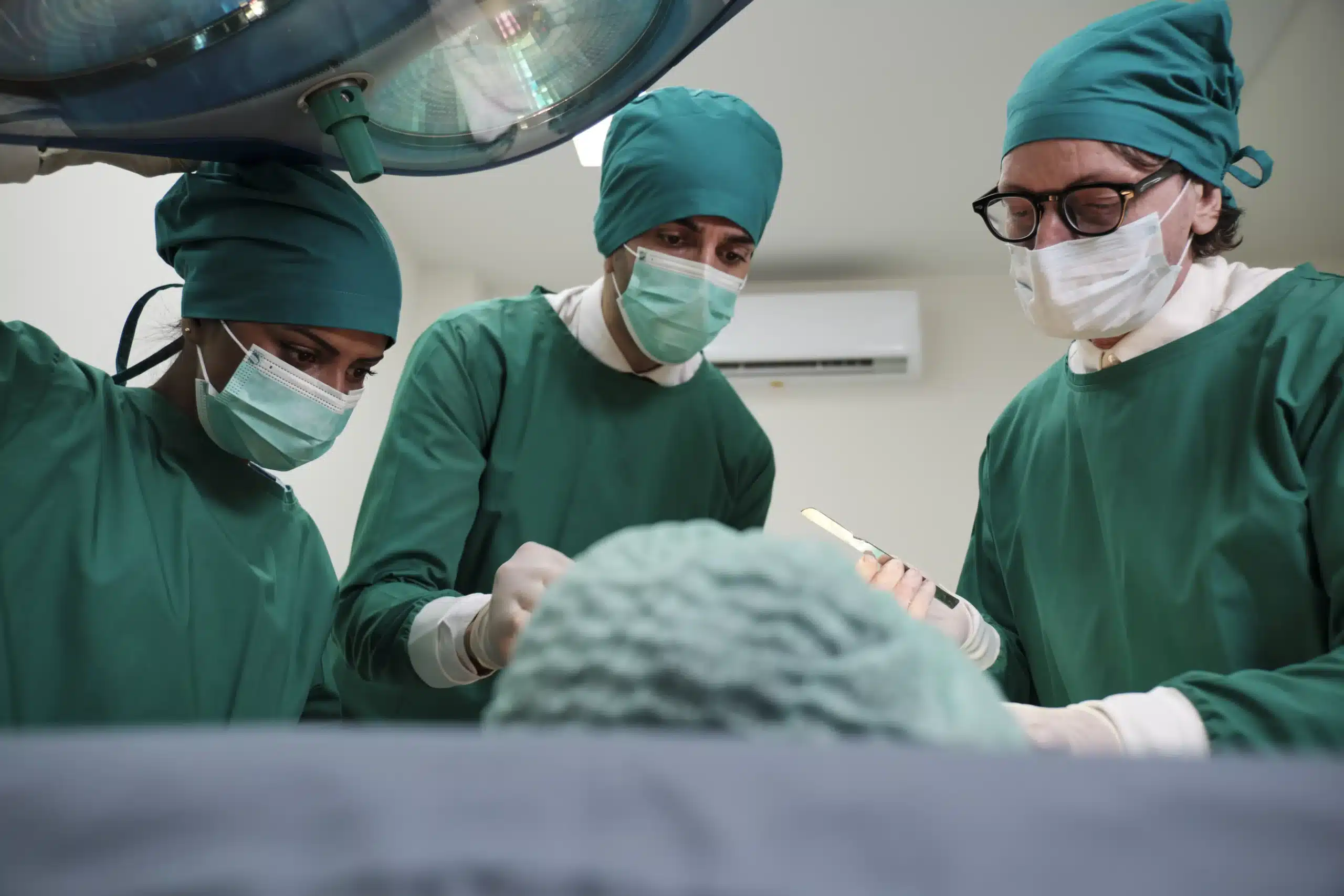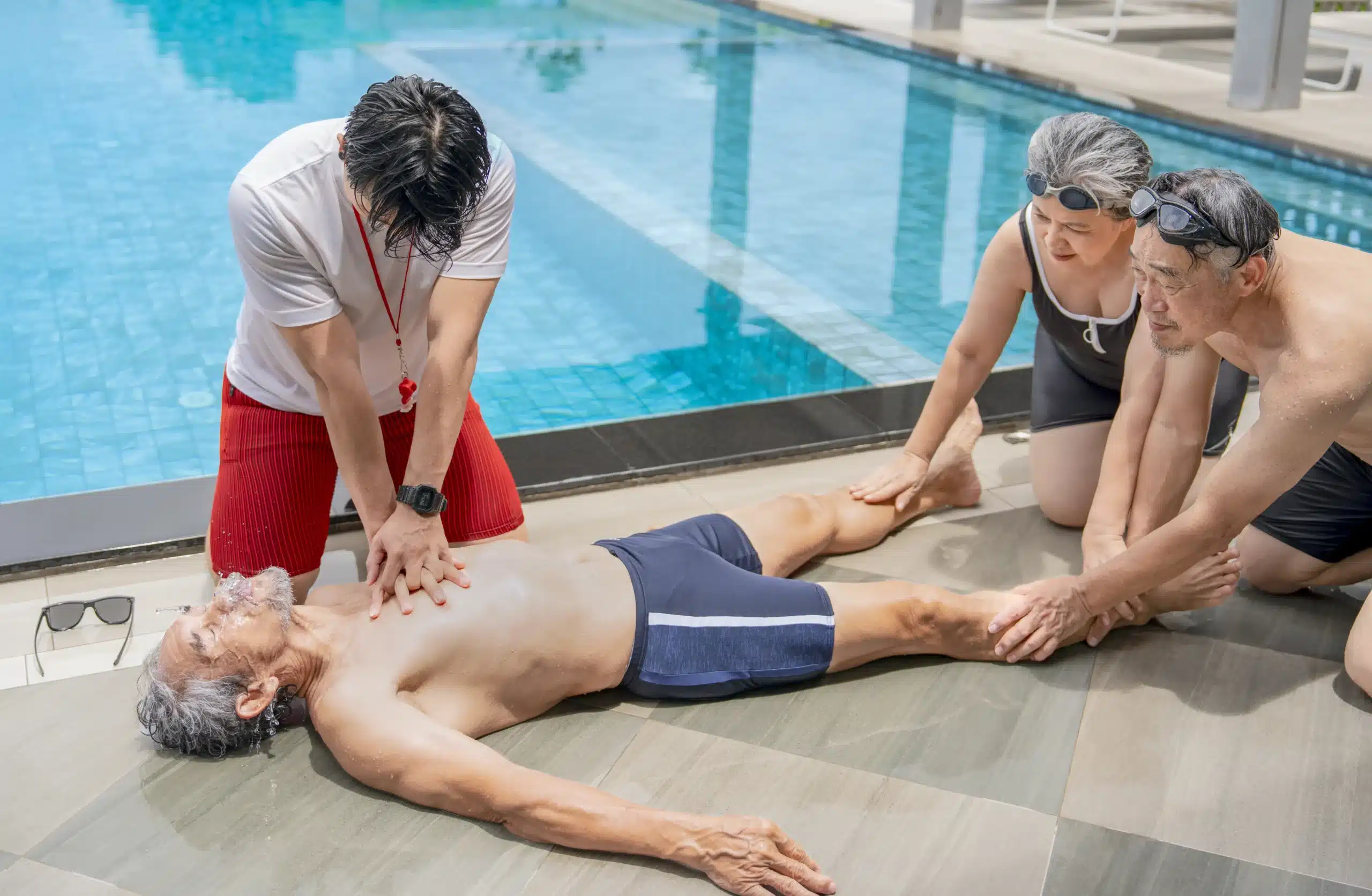Keeping your CPR skills sharp is crucial for any healthcare professional. But finding the time for traditional recertification courses can be difficult. RQI in Milpitas offers a modern, flexible approach to CPR training that fits your busy schedule. This program emphasizes short, frequent practice sessions using simulation stations with real-time feedback. This article will guide you through the key features of RQI, how it compares to traditional CPR training, and why it’s a game-changer for healthcare providers in Milpitas seeking to maintain their certifications and enhance their life-saving skills.
Key Takeaways
- RQI provides flexible CPR training that fits your schedule: Combining online learning with short, frequent skills sessions, RQI makes it easier to stay current on your certifications, even with a busy lifestyle.
- Hands-on practice and feedback are key to RQI’s effectiveness: The use of simulation stations and real-time feedback helps you refine your technique and build confidence in your CPR skills.
- RQI is readily available in Milpitas, making high-quality training accessible: Find convenient class schedules and same-day certification options in your area, ensuring you’re always prepared for emergencies.
What is RQI? A Modern CPR Training Approach
What is the RQI Program?
RQI, or Resuscitation Quality Improvement, is a training program developed by the American Heart Association. It offers a more effective and flexible way for healthcare professionals to earn and maintain their BLS, ACLS, and PALS certifications. Unlike traditional CPR courses, RQI uses a blended learning approach combining online learning with short, frequent skills sessions. This allows healthcare providers in busy environments like hospitals and clinics to fit training into their schedules more easily. The focus is on high-quality CPR skills and consistent practice, leading to better patient outcomes. You can learn more about our RQI classes on our website.
Key RQI Features
RQI stands out for its innovative use of simulation stations and real-time feedback. These stations provide a realistic training environment where participants can practice their skills and receive immediate feedback on their performance. This helps them identify areas for improvement and refine their technique. The low-dose, high-frequency training model ensures that skills stay fresh and reinforces best practices, ultimately improving CPR quality and provider confidence. For those interested in learning more, research supports the effectiveness of frequent practice and feedback in maintaining CPR skills. You can find more information in this research article.
RQI vs. Traditional CPR: Key Differences
Frequent, Short Training
Traditional CPR training often involves lengthy, infrequent sessions. You might spend a full day getting certified, only to renew every two years. RQI takes a different approach. It emphasizes short, more frequent training sessions, typically quarterly. This “low-dose, high-frequency” model helps reinforce skills and improve retention. Think of it like learning a language – short, regular practice is more effective than cramming before a test. This consistent reinforcement ensures you’re always ready to respond effectively in a real emergency. RQI’s flexible, quarterly training fits easily into busy schedules, making it a practical choice for healthcare professionals and anyone committed to maintaining their CPR skills.
Digital Delivery & Real-Time Feedback
Unlike traditional CPR classes, RQI incorporates innovative technology. You’ll use simulation stations and interactive learning modules that provide real-time feedback on your compressions and ventilations. This immediate feedback helps you correct mistakes and refine your technique as you learn. Imagine having a personal CPR coach guiding you every step of the way. This personalized approach accelerates learning and builds confidence. You can track your progress and identify areas for improvement, ensuring you’re providing the highest quality CPR possible.
Focus on High-Quality CPR
RQI’s primary goal is to improve the quality of CPR performed. While traditional CPR courses focus on initial certification, RQI emphasizes ongoing skill maintenance and improvement. It recognizes that even certified professionals can struggle to deliver high-quality CPR under pressure. This article further discusses common misconceptions about CPR certification. RQI addresses this gap by focusing on consistent practice and real-time feedback. This results in more confident and competent CPR providers, better prepared to handle real-life emergencies. By prioritizing quality and consistent practice, RQI helps ensure that CPR is performed effectively when it matters most.
RQI Certifications in Milpitas
RQI courses are available for several certifications, each designed for different levels of healthcare providers. Whether you’re just starting your medical career or are a seasoned professional, there’s an RQI path for you in Milpitas. Since RQI classes are in high demand, register early to secure your spot. Providers like Safety Training Seminars offer RQI courses seven days a week in Milpitas and surrounding areas.
BLS RQI: For Healthcare Professionals
BLS, or Basic Life Support, is the foundation of CPR. A BLS RQI certification keeps healthcare professionals updated on the latest science and techniques for performing high-quality CPR on adults, children, and infants. This certification is essential for anyone working in a healthcare setting.
ACLS RQI: For Advanced Cardiovascular Care
ACLS RQI training goes beyond the basics, equipping healthcare providers with the knowledge and skills to manage cardiovascular emergencies and other life-threatening situations. This program is crucial for physicians, nurses, paramedics, and other professionals involved in advanced cardiac life support. The American Heart Association RQI program is a popular way for medical professionals in Milpitas to receive their official AHA certification cards.
PALS RQI: For Pediatric Emergency Responders
PALS RQI focuses on the specific needs of infants and children facing respiratory or cardiac arrest. This certification is vital for pediatricians, nurses specializing in pediatric care, emergency medical technicians, and anyone regularly interacting with young children. Studies like this one on Learning RQI show that practicing CPR skills at an RQI simulation station, with real-time feedback, helps participants maintain and even improve their compression and ventilation skills.
Benefits of Milpitas RQI Classes
RQI offers a new approach to CPR training, and in Milpitas, the benefits are clear. Whether you’re a nurse, doctor, or other healthcare provider, RQI’s flexible and efficient design makes staying current on your certifications easier than ever.
Convenient and Accessible
RQI classes are available seven days a week in Milpitas and the surrounding areas. This accessibility removes scheduling barriers for busy professionals. Register early to secure your spot, as these in-demand RQI classes fill up quickly. Santa Clara CPR Classes offers convenient training options for those in nearby cities.
Same-Day Certification
The American Heart Association RQI program is a streamlined path to obtaining your BLS, ACLS, and PALS certifications. This modern approach allows medical professionals in Milpitas to receive their official American Heart Association certification cards the same day they complete the RQI course. This efficiency is invaluable for those needing to renew their credentials quickly.
Improved CPR & Lower Ventilation Rates
RQI training utilizes simulation stations with real-time feedback. This technology allows participants to fine-tune their CPR technique and make immediate adjustments, leading to improved CPR performance. Studies show that RQI training can lead to more effective compressions and lower ventilation rates, contributing to better patient outcomes. For more information on how RQI improves CPR skills, review this research.
Continuous Skill Refreshers
Unlike traditional CPR courses, RQI emphasizes frequent practice. Regular skill checks at the RQI simulation station, typically every three months, help maintain and even improve CPR skills. This ongoing reinforcement ensures you’re always prepared to deliver high-quality CPR. Consistent practice with real-time feedback helps maintain muscle memory and improve proficiency from your baseline skill level.
The RQI Learning Experience
The RQI learning experience blends online learning with hands-on practice and ongoing assessments. This flexible approach makes it easier to fit training into a busy schedule and helps develop lasting CPR skills.
Online Learning & Self-Direction
The American Heart Association RQI program offers a self-directed learning experience. You can begin the online portion at your own pace, typically completing it within a few hours. This allows you to learn the fundamentals of CPR from anywhere with internet access. This flexibility is perfect for healthcare professionals juggling demanding schedules.
Hands-on Practice with Manikins
RQI emphasizes hands-on practice using simulation stations. These stations provide real-time feedback on your compressions and ventilations, allowing you to make immediate adjustments and refine your technique. Regular practice with manikins helps maintain and even improve CPR skills over time. This focus on practical application ensures you’re prepared for real-world scenarios.
Ongoing Assessments & Skill Maintenance
Unlike traditional CPR courses, RQI incorporates ongoing assessments. The simulation stations provide real-time feedback and assessments, allowing you to identify areas for improvement and adjust your technique. This continuous reinforcement helps maintain consistent, high-quality CPR performance. This ongoing feedback loop is key to retaining crucial skills and ensuring you’re always ready to respond effectively.
Find RQI Classes in Milpitas
Finding the right RQI training center is crucial for healthcare professionals seeking to maintain their certifications and enhance their life-saving skills. Milpitas, CA, and the surrounding areas offer several convenient options for RQI certification.
RQI Training Centers
Santa Clara CPR Classes
Santa Clara CPR Classes offers RQI courses focused on building essential skills and knowledge in emergency care. Located nearby, they provide a convenient option for those seeking American Heart Association certifications like BLS, ACLS, and PALS. Learn more about their RQI course offerings.
Safety Training Seminars
Safety Training Seminars is another option for RQI training in Northern California. They offer courses seven days a week and are known for competitive pricing. They also offer the flexibility of on-site training, allowing organizations to schedule sessions at their convenience.
Milpitas CPR Classes
For those specifically seeking RQI training in Milpitas, Milpitas CPR Classes offers courses tailored to local residents and professionals. Their program is designed for efficiency, helping participants quickly acquire essential CPR skills. With classes available throughout the week, they offer flexible scheduling to accommodate busy lifestyles. Explore their RQI classes and schedules.
Class Schedules & Registration
RQI classes are in high demand, so registering early is always recommended. Many providers offer online registration and flexible scheduling options, making it easier to fit these essential training sessions into your schedule. Check with your chosen provider for specific class schedules and registration details.
RQI’s Impact on Healthcare Quality
RQI training has significantly impacted healthcare quality by focusing on consistent skill maintenance and real-time feedback. This approach leads to better patient outcomes, increased provider confidence, and smoother integration into daily practice.
Improved Patient Outcomes
Traditional CPR training often leads to skill decay over time. RQI combats this through its low-dose, high-frequency training model. Studies show that regular practice with RQI’s simulation stations and real-time feedback helps healthcare providers maintain and even improve their CPR skills. This leads to more effective interventions during real emergencies. The RQI program emphasizes mastery through frequent practice and performance feedback, ensuring providers can deliver high-quality CPR when it matters most. This consistent skill maintenance translates directly to improved patient outcomes and survival rates.
Enhanced Provider Confidence
Confidence is crucial in high-pressure situations like cardiac arrest. RQI boosts provider confidence by offering regular opportunities to practice and receive immediate feedback. Using audiovisual feedback during practice allows providers to refine their technique and gain a deeper understanding of effective CPR. This continuous reinforcement builds confidence and reduces hesitation during actual emergencies. Providers feel empowered to act decisively and effectively, knowing they have consistently honed their skills with real-time adjustments.
Integration into Practice
One of the challenges with traditional CPR training is integrating it into busy healthcare routines. RQI addresses this by offering flexible, low-dose training sessions that fit seamlessly into providers’ schedules. This approach makes CPR training a regular part of professional development, rather than a one-time event. The flexible training model prevents CPR skill decay and ensures providers maintain a higher standard of patient care. By incorporating RQI stations into healthcare facilities, providers can easily access training and maintain their skills without disrupting their workflow.
Addressing RQI Concerns in Milpitas
We understand that adopting a new training program like Resuscitation Quality Improvement (RQI) can bring up questions. Here at Santa Clara CPR Classes, we want to address some common concerns about RQI, especially for those of you in Milpitas and surrounding areas like San Jose and Santa Clara.
RQI Learning Model Effectiveness
One of the biggest questions we hear is whether the RQI learning model is truly effective. The short answer? Yes. The American Heart Association developed RQI to improve CPR competency through “low-dose, high-frequency training and performance feedback.” This means you practice regularly, in short bursts, and receive immediate feedback, leading to better skill retention. This approach is a shift from traditional CPR training, but studies show it’s a highly effective way to maintain crucial skills. For more information on our RQI offerings, visit our RQI classes page.
Time Commitment & Flexibility
Many healthcare professionals in Milpitas have demanding schedules. We get it—finding time for additional training can be tough. RQI is designed with flexibility in mind. The simulation stations allow you to practice at your own pace and receive real-time feedback, so you can make adjustments and master the techniques quickly. You can fit these short practice sessions into your workday, minimizing disruption to your routine. Contact us at Santa Clara CPR Classes to learn more about convenient scheduling options.
Certification Renewal
With traditional CPR training, it’s easy for skills to decline before the next renewal period. RQI addresses this through consistent practice. Research shows that practicing on the RQI simulation station every three months helps maintain and even improve CPR skills. This research highlights how RQI helps prevent skill decay, ensuring you’re always ready to respond effectively in an emergency. This consistent reinforcement makes renewal a smoother process. Check out our Low Price Guarantee for the best value on your RQI certification.
Healthcare Facility Compatibility
Integrating a new training program into a healthcare facility can seem daunting. However, RQI is designed to be seamlessly incorporated into existing workflows. It addresses the challenge of infrequent CPR practice, a common issue in busy hospital settings. This case study demonstrates how RQI can be successfully implemented in a real-world healthcare environment, improving provider skills and patient care. If you’re looking to implement RQI in your Milpitas facility, our team at Santa Clara CPR Classes can help. Reach out to us to discuss your facility’s needs.
Transitioning to RQI: Tips
Switching to RQI CPR training can feel like a big change. These tips will help you adjust and get the most from the program.
Adapt to New Technology
RQI uses simulation stations and manikins that give you instant feedback on your compressions and ventilations. This real-time feedback helps you correct your technique right away and build muscle memory. This technology measures metrics like compression depth and rate, ensuring you deliver high-quality CPR. Think of it as having a personal CPR coach guiding you through each practice session.
Embrace Continuous Learning
RQI moves away from the traditional model of infrequent recertification courses. Instead, it emphasizes short, regular practice sessions. This approach reinforces your skills and keeps them fresh. The consistent reinforcement helps you confidently perform CPR when it matters most.
Maintain Consistent Self-Directed Practice
With RQI, you’re in control of your training schedule. Regular practice at the RQI simulation station, even for short periods, is key to maintaining and improving your skills. Make a commitment to regular practice—it’s the cornerstone of the RQI method.
Related Articles
- CPR Certification in San Jose: A Complete Guide
- Why CPR Matters in Healthcare
- CPR Training in Santa Clara: A Complete Guide – Santa Clara CPR Classes
- Santa Clara CPR Classes: A Complete Guide
- ACLS HeartCode Santa Clara: Your Certification Guide – Santa Clara CPR Classes
Frequently Asked Questions
How does RQI differ from traditional CPR training? RQI uses a blended learning approach combining online modules with short, frequent hands-on skills sessions at a simulation station. Traditional CPR training typically involves longer, less frequent classes. RQI’s focus on regular practice and real-time feedback leads to better skill retention and improved CPR quality. It’s designed to fit the busy schedules of healthcare professionals.
What are the benefits of RQI certification? RQI certification ensures you stay up-to-date with the latest CPR guidelines and techniques. The frequent practice and feedback build confidence and improve your ability to perform high-quality CPR in real-life emergencies. RQI’s flexible format makes it easier to fit training into your schedule, and the focus on skill maintenance ensures you’re always prepared to respond effectively.
Where can I find RQI classes in Milpitas? Several training centers in and around Milpitas offer RQI courses, including Santa Clara CPR Classes, Safety Training Seminars, and Milpitas CPR Classes. These providers offer various schedules and certification levels, including BLS, ACLS, and PALS RQI. Check their websites or contact them directly for specific class schedules and registration information. It’s always a good idea to register early, as these classes can fill up quickly.
What if I’m not comfortable using technology for training? While RQI incorporates online learning and simulation technology, the hands-on practice and feedback from instructors are still central to the program. The technology enhances the learning experience by providing real-time feedback and tracking your progress. If you have any concerns about using the technology, the training centers offer support and guidance to help you get comfortable with the equipment and software.
Is RQI more expensive than traditional CPR training? While pricing can vary depending on the training center and certification level, RQI’s focus on efficiency and flexible scheduling can actually save you time and money in the long run. The shorter, more frequent sessions minimize time away from work, and the improved skill retention reduces the need for refresher courses. Consider the long-term value of improved skills and confidence when comparing costs. Many providers also offer competitive pricing and discounts. Contact your chosen training center for specific pricing information and to discuss any available discounts.
